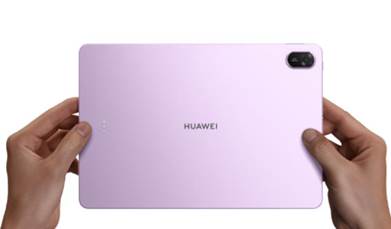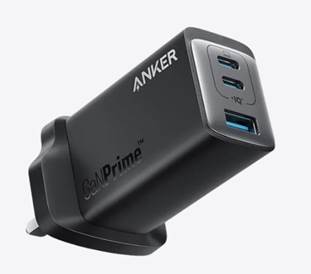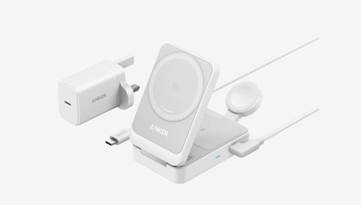Choosing
a tablet feels overwhelming with endless technical terms and bold marketing
claims. Many shoppers focus on brand names, assuming a familiar logo guarantees
perfection. However, not every device fits every lifestyle, and paying more
doesn't always mean getting more. Understanding what features genuinely impact
your daily use—from reading recipes to helping with homework—is the key to
satisfaction. In this article, we break down critical tablet features in simple
terms, helping you identify what matters without overspending.

Display Technology: Beyond Just Resolution
When
evaluating a tablet's screen, resolution is just one part of the visual
experience. Factors like panel type—IPS LCD or OLED—affect color accuracy and
brightness, making content look vibrant and readable. The refresh rate is also
key; a smoother 90Hz or 120Hz display makes scrolling through social media feel
noticeably fluid. Additionally, screen size and aspect ratio determine how well
the device works for multitasking. Ultimately, a great display is about how
comfortably you can view content for extended periods.
Performance Truths: Separating Specs from Reality
Processor Myths: Why Cores Aren't Everything
A
processor’s efficiency—how well it balances power with battery drain—is more
crucial than core counts for everyday tasks. A chipset with newer-generation
cores often outperforms an older multi-core processor because it handles heat
and energy better. This means your tablet stays cool during video calls or
note-taking without slowing down. Most users need smooth operation for
activities like web browsing and streaming, not maximum performance.
Manufacturers now optimize hardware and software together for reliability,
making real-world performance more important than specs.
RAM Management: How Much Do You Really Need?
Random
Access Memory holds information for quick access, and its management is as
important as its size. While 4GB might suffice for casual users, 6GB or 8GB
allows more comfortable multitasking without reloading apps. Software
optimization plays a huge role; some devices use memory more efficiently, doing
more with less. If you often use productivity tools or multiple tabs, extra RAM
helps. But for streaming or reading, standard configurations are usually
sufficient.
Battery Life Secrets: Understanding Real-World Usage
mAh vs Actual Screen-On-Time
Battery
capacity in mAh doesn't always translate directly to usage time. Screen
brightness, app usage, and connectivity all influence real-world performance. A
device with lower mAh might last longer with power-efficient components. For
most people, all-day battery life is the goal—using the tablet for work and
entertainment without constant charging. Look for reviews mentioning
screen-on-time rather than relying solely on mAh ratings.
Fast Charging: What Speeds Make a Difference
Fast
charging speeds, measured in watts (W), determine how quickly your battery
refills. Higher watts mean faster charging, but the benefit depends on your
habits. If you charge overnight, even basic charging may suffice. For those on
the go, fast charging provides hours of use from a short session. Check if the
charger is included, as some manufacturers don't provide one. This feature is
ultimately about convenience and adapting to your lifestyle.
Storage Smart Choices: Avoiding Costly Mistakes
Storage
capacity determines how many photos, apps, and files you can keep without
running out of space. While 64GB might sound adequate, system software uses a
portion, so it can fill up fast. If you download movies or save work files,
opting for 128GB or more prevents frustration. Expandable storage via microSD
cards offers a cost-effective way to add space. If you primarily use cloud
services or stream content, lower capacities may work fine.
Software Support: The Long-Term Value Factor
Software
updates are critical for security, performance, and new features over time.
Regular updates keep your device protected and running smoothly for years. The
duration of support varies, affecting how well your tablet ages with latest
apps and services. A clean, intuitive interface with minimal bloatware makes
navigation simpler and more enjoyable. Consider the software roadmap as part of
the overall value when choosing.

Audio & Camera: Nice-to-Have vs Essential
For
most users, speakers and cameras serve specific purposes. Good audio with
stereo speakers enhances video watching, but may not be essential if you use
headphones. Tablet cameras are mainly for video calls and scanning documents,
so ultra-high megapixels matter less than autofocus and noise reduction. If you
frequently attend online meetings, a decent front camera and clear speakers are
valuable. For consumption and browsing, these features might be lower priority.
Conclusion
The
ideal tablet best supports your daily life without unnecessary extras. Focus on
what truly matters—a
comfortable display, reliable performance, all-day battery, and sufficient
storage. Remember to prioritize software support for long-term satisfaction.
For those seeking a balanced experience, devices like the Huawei MatePad 11.5
deliver smooth performance and versatility for everyday tasks at a competitive matepad 11.5 price point. Your perfect tablet is about matching the right features
to your needs without overspending.



